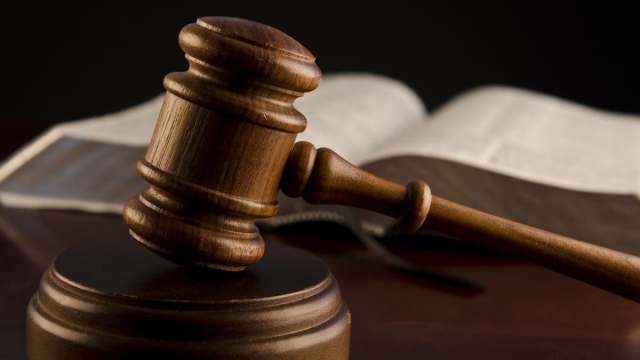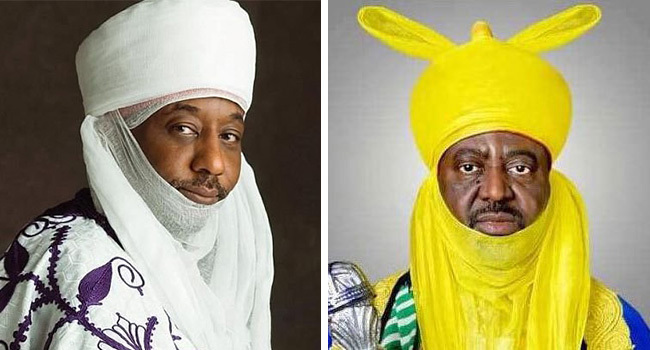Twenty-one Civil Society Organisations have demanded the immediate release of a human rights lawyer, Inibehe Effiong, who was placed in prison for a month by the Chief Judge of Akwa Ibom State, Justice Ekaette Obot.
Recall that she committed the lawyer to prison for contempt of court during a sitting in Uyo, the Akwa Ibom State capital.
According to the groups, information gathered from Effiong’s Twitter handle showed that he was representing one Leo Ekpenyong in a libel suit filed by Governor Udom Emmanuel.
Effiong had applied to the court to recuse herself in the matter, alleging bias.
This application was brought to the notice of the court, but the court ignored it and instructed the counsel to commence his cross-examination.
Thereafter, his lordship asked a reporter that was in the courtroom to leave the court.
The group said: “Thereafter, counsel prayed the court to order the two-armed mobile policemen sitting in the courtroom to leave the courtroom because he felt intimidated and uncomfortable.
“At this point, according to the counsel, the Honourable Chief Judge asked him to step out of the bar and cited him for contempt without hearing him on the charge of contempt.
“His lordship ordered the same armed policemen to take him into custody and remand him in the Uyo Correctional Center for one month.
“While we appreciate the power of the court to deal with issues of contempt under the Federal and States High Court Civil Procedure Rules and Judgment (Enforcement) Rules made pursuant to the Sheriffs and Civil Process Act, we would have expected Her Ladyship to use the same sparingly and much more circumspectly.”
The groups argued that the power to punish a person for contempt was not conferred on the court for the judge’s personal ego or aggrandisement.
They added: “It is the power to protect the cause of justice from being abused or hindered.
“Thus, there is a clear distinction between conduct that affects the dignity of the Court or which tends to bring the administration justice to disrepute and conduct which merely annoys the judge.
“In Joseph Izuora v The Queen the Privy Council held authoritatively and succinctly that: ‘It is not every act of discourtesy to the Court by Counsel that amounts to contempt, nor any conduct which involves a breach by Counsel of his duty to his client. In the present case, the appellant’s conduct was clearly discourteous, it may have been a breach of the rules and it may perhaps have been a dereliction of his duty to his client but in their Lordship’s opinion it cannot properly be placed over the line that divides mere discourtesy from contempt.’
“It must be emphasised that Courts ought not to punish learned counsel or anybody for that matter for contempt simply because the court felt insulted or annoyed.
“That also would be an abuse of the power to punish for contempt.”
Further strengthening its argument, the groups said that in Adeyemi Candid-Johnson v. Mrs. Esther Edigi, the Honourable Court of Appeal while condemning such abuse or inordinate use of the power to punish for contempt, held as follows: “Apparently, when tempers rose rather meteorically, the respondent, exacerbated by the situation, unleashed this incisive question: ‘When did you leave the law school?’ The response, going by the record, was equally unrelenting: ‘I will refuse to answer that question in the rudest manner.’
The group continued: “It was the refusal to answer this question, according to the record, that broke the camel’s back, and led to the detention of the appellant for contempt of court.
“It was unfortunate, to say the least, for the respondent, according to the records, to have taken leave of her exalted bench, invited counsel to extra-judicial dialogue, and thereafter descended into the arena of vituperative conflict with him.”
The groups stated that the only instance in which words or action of a person or counsel could amount to contempt in the face of the court is when such action would interfere in the course of justice.
Even then, such powers must be used sparingly, the groups said, adding: “In Inec & Anor v. Oguebego & Ors the Honourable Supreme Court held authoritatively and succinctly that:
“For words or actions used in the face of the Court, or in the course of proceedings, to be contempt, they must be such as would interfere with the course of justice.
“A superior Court of record has the inherent jurisdiction to deal with contempt in facie curiae and punish the offence summarily. It must once again be emphasised that the summary power of punishing for contempt should, however, be used sparingly and only in serious cases….”
Furthermore, the group said that even though contempt in the face of the court could be dealt with summarily-not requiring the calling of the evidence-the court ought to hear the alleged contemnor by asking him to show cause why he should not be dealt with for his contempt.
It said: “From the information gathered from counsel, no such procedure was followed. We are aware of a recent report by a learned gentleman, Ndon Asian, who claims to have observed the proceedings before and during the last sitting.
“His report is to the effect that the aggregation of Inibehe’s actions and utterances throughout the proceedings could amount to acts that bother to contempt of court.
“Assuming that is the case, the learned gentleman did not debunk the fact that the learned Chief Justice did not give Inibehe the right of hearing on the contempt proceeding.
“Her Ladyship simply told the counsel to step out of the bar and committed him for contempt.
“The holding of the Honourable Court of Appeal in Ogbuagu Saint Anthony Anozia Onowu v. Ogbuagu HBC. Ogboko & Ors is instructive in this wise.
“Their lordship held thus: Where it [the contempt] is contempt committed in the immediate view and presence of the Court, such as insulting language or acts of violence or same near the presence of the Court as to obstruct or interrupt the due and orderly course of proceedings i.e. in facie curiae, it is dealt with by the Court, summarily.
“The offending party will be asked to go into the dock and a charge would be prepared by the Court and the offence of the offending party would be specifically and distinctly stated to him and he would be asked to show cause from the dock why he should not be punished for contempt.
“Niki Tobi JCA (as he then was) said in the case of Akpan Vs Akpan warned that “Since contempt proceedings affect the liberty of the individual, the law expects strict compliance with the procedural rules.
“Therefore, where there is the slightest deviation or non-compliance with the rules, a Court of law must exercise its discretion in favour of the contemnor.
“This is because the law cannot afford to gamble with the liberty of the individual.
“Her Ladyship must have been offended by the utterances or the audacity of the learned counsel.
“But this was exactly the circumstance wherein she ought to act with the greatest restraint, candour, and equanimity.
“Otherwise, she risked acting in travesty of justice leading to a desecration of the hallowed temple of justice by the very official on whose shoulders lies the burden of protecting rights, justice, and the sanctity of the court.
“She also risked flouting the rights of the defendant, in that case, to have a lawyer represent him as well as the fundamental rights of the lawyer himself.
“The need for Her Ladyship to have acted with much more restraint is underscored by the fact that the learned counsel had filed a motion before the court for the court to recuse herself on the ground that she is likely to be biased in the handling of the case.
“Her ladyship should have been more circumspect in view of this.
“Unfortunately, this committal for contempt evidently now seems to confirm the fear of the counsel and the travail of counsel now seems likely preplanned and premeditated.
“It would now appear that her ladyship evidently planned to arrest the counsel and to do that, she ordered journalists out of the court while at the same time planting armed mobile policemen in the court.
“This of course might not have been the court’s intention, but circumstances now point in that direction.
“The fact that Her Ladyship might not have taken the counsel through the contempt procedure of asking him to show cause why he should not be committed for contempt (which would have been documented in the record of proceedings) may make the whole scenario a matter of counsel’s words against the court’s which is not the best.”
The group added that flowing from the aforesaid, “we appeal to the Honourable Chief Justice to save the situation by reversing the order of committal and possibly recuse herself from the case.
“We also call on the National Judicial Commission (NJC) to wade into this matter, review the situation and restore sanctity to the proceeding and judicial process.







